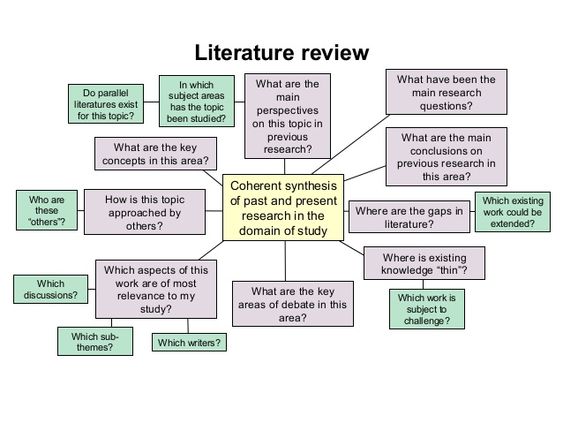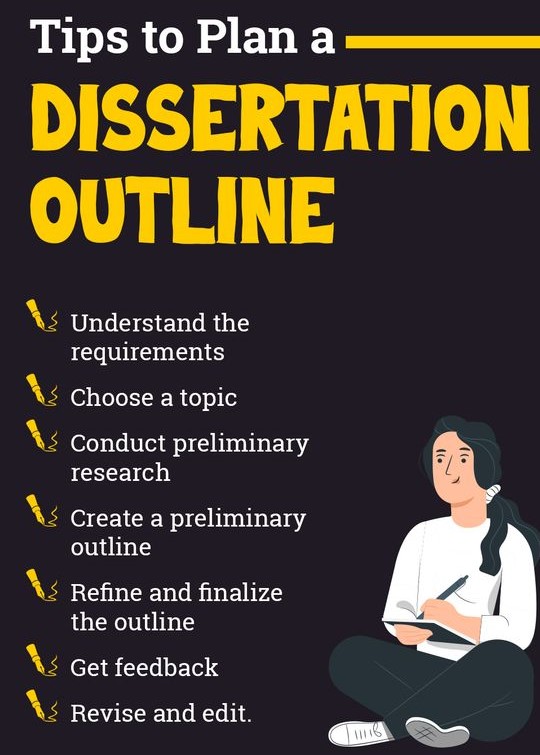Embarking on a nursing dissertation journey is a momentous undertaking. It demands not only rigorous academic pursuit but also a commitment to advancing knowledge within the field. However, the journey of nursing dissertation research can be fraught with challenges. It often leaves aspiring researchers feeling lost in a labyrinth of research methodologies, data analysis techniques, and the daunting task of writing a comprehensive and impactful dissertation.
Yet, you can still navigate this labyrinth and emerge with a successful and insightful dissertation with the right strategies. The following article offers comprehensive guidelines for effective nursing dissertation research.
A Step-By-Step Guide for Seamless Dissertation Research
1. Defining a Clear and Focused Research Question:
The cornerstone of any successful nursing dissertation research lies in formulating a clear and focused research question. This question should be relevant to the field of nursing, address a gap in current knowledge, and be feasible within the constraints of your time, resources, and expertise. Engage in thorough literature reviews to identify existing research, uncover unanswered questions, and refine your research focus. Consider using the PICOT (Population, Intervention, Comparison, Outcome, Time) framework to structure your question, ensuring clarity and specificity.
2. Choosing the Right Methodology:

Selecting the appropriate research methodology is crucial for conducting impactful nursing dissertation research. This choice depends on the nature of your research question and the type of data you intend to gather. Qualitative methods, such as interviews or focus groups, are ideal for exploring subjective experiences and understanding complex social phenomena. Quantitative methods, such as surveys or experimental studies, are better suited for measuring objective data and testing hypotheses. The choice of methodology will determine the design of your study, data collection techniques, and analysis methods.
3. Ethical Considerations in Nursing Research:
Ethical considerations are paramount in nursing dissertation research, as the well-being of participants is paramount. Ensure your research adheres to ethical guidelines by obtaining informed consent, protecting participant privacy, and minimizing potential risks. Employ rigorous methods for data collection and analysis to ensure accuracy and objectivity. Remember, the pursuit of knowledge must always be guided by ethical principles and a commitment to responsible research practices.
4. Data Collection Strategies:
The success of your nursing dissertation research hinges on the effectiveness of your data collection strategies. Ensure the chosen methods are aligned with your research question and methodology. Carefully consider the advantages and disadvantages of each method, such as the potential for bias, feasibility of implementation, and the availability of necessary resources. Develop a detailed plan for data collection, including participant recruitment, data collection instruments, and protocols for ensuring data quality.
5. Data Analysis and Interpretation:
Analyzing and interpreting your data is a crucial step in nursing dissertation research. Choose appropriate analytical techniques based on your research methodology and the type of data collected. Qualitative data analysis often involves thematic analysis, while quantitative data analysis relies on statistical methods. Ensure that your analysis is rigorous and thorough, providing meaningful insights into your research question. Consider the limitations of your study and interpret your findings cautiously, avoiding overgeneralization and focusing on the specific context of your research.
6. The Importance of Literature Review:

A comprehensive and critical literature review is essential for framing your nursing dissertation research and informing the development of your research question. It involves exploring existing literature on your chosen topic, identifying gaps in knowledge, and framing your research within the broader context of the field. Carefully evaluate the quality of the research you review, considering its methodology, findings, and implications. The literature review should demonstrate your understanding of the current state of knowledge and highlight the unique contribution your research aims to make.
7. Effective Time Management and Organization:
Conducting nursing dissertation research requires effective time management and organization. Develop a detailed timeline, allocating sufficient time for each stage of the research process, from initial literature review to final dissertation writing. Break down large tasks into smaller, manageable steps to avoid feeling overwhelmed. Leverage organizational tools, such as project management software or a simple planner, to keep track of deadlines, responsibilities, and progress. Regular self-assessment and reflection will help you stay on track and adjust your schedule as needed.
8. Seeking Mentorship and Support:
Navigating the challenges of nursing dissertation research can be daunting, and seeking mentorship and support is essential for success. Identify a knowledgeable faculty advisor who can provide guidance, expertise, and feedback throughout the research process. Connect with peers who are also conducting research, forming a support network for sharing ideas, experiences, and resources. Reach out to researchers in your area of interest for mentorship and collaboration opportunities.
9. Disseminating Your Findings:
The culmination of your nursing dissertation research is the dissemination of your findings to the broader nursing community. Consider publishing your research in peer-reviewed journals, presenting your findings at conferences, or sharing your work through other platforms. Dissemination not only elevates your research impact but also contributes to the advancement of nursing knowledge and practice.
10. Overcoming the Challenges of Dissertation Research:
The journey of conducting nursing dissertation research is not without its challenges. Expect to encounter setbacks, face moments of doubt, and navigate the complexities of research methodology. However, remember that these challenges are an integral part of the learning process. Embrace a growth mindset, seek support from your mentors and peers, and persevere through difficult times.
Key Strategies for Effective Nursing Dissertation Research

- Focus on a clear research question: A focused and relevant question is the foundation of a successful dissertation.
- Choose the right methodology: Select a method aligned with your research question and data requirements.
- Prioritize ethical considerations: Ensure your research adheres to ethical principles and protects participants.
- Develop effective data collection strategies: Employ methods appropriate for your research question and methodology.
- Analyze and interpret data rigorously: Utilize appropriate analytical techniques to extract meaningful insights.
- Conduct a comprehensive literature review: Frame your research within the existing body of knowledge. Review scholarly articles from relevant academic platforms such as Nursing Papers.
- Manage time effectively and stay organized: Create a realistic timeline and utilize organizational tools.
- Seek mentorship and support from peers and faculty: Leverage their expertise and guidance.
- Disseminate your findings: Share your research to impact the nursing community.
- Embrace challenges and persevere: Be prepared for setbacks and seek support when needed.
The Best Topic Ideas for a Nursing Dissertation
Here are 7 topic ideas for a nursing dissertation that you should consider:
- Exploring the Impact of Mindfulness-Based Interventions on Burnout and Compassion Fatigue in Critical Care Nurses: This dissertation could investigate the effectiveness of mindfulness programs in mitigating stress and burnout among nurses working in high-pressure environments. "Nursing dissertation research" in this area could focus on measuring stress levels, compassion fatigue, and job satisfaction before and after the intervention.
- The Role of Technology in Patient Education and Self-Management of Chronic Diseases: This dissertation could examine the effectiveness of using technology, such as mobile apps or telehealth platforms, in empowering patients with chronic conditions to manage their own care. "Nursing dissertation research" in this area could assess patient satisfaction, adherence to treatment plans, and overall health outcomes.
- Examining the Relationship Between Nurse Staffing Levels and Patient Safety Outcomes: This dissertation could investigate the link between nurse staffing ratios and adverse events, such as falls, medication errors, and hospital-acquired infections. "Nursing dissertation research" could explore data from hospital records and patient safety reports to determine the impact of staffing on patient care quality.
- Developing and Evaluating a Culturally Tailored Intervention to Improve Diabetes Management in Minority Populations: This dissertation could focus on addressing health disparities and improving diabetes care among underserved communities. "Nursing dissertation research" would involve designing and testing an intervention that considers the unique cultural beliefs and practices of the target population.
- The Experiences of Nurses Providing End-of-Life Care in the Home Setting: This dissertation could explore the challenges and rewards of providing palliative care in a home environment. "Nursing dissertation research" could involve qualitative interviews with nurses to gain insights into their experiences, ethical dilemmas, and coping mechanisms.
- Analyzing the Impact of Virtual Reality Simulation Training on Nursing Students' Clinical Skills Proficiency: This dissertation could investigate the effectiveness of VR simulations in preparing nursing students for real-world clinical practice. "Nursing dissertation research" could involve comparing the performance of students trained using VR with those who received traditional simulation training.
- The Influence of Organizational Culture on Nurse Retention and Job Satisfaction: This dissertation could explore how organizational factors, such as leadership styles, communication practices, and work environment, affect nurse satisfaction and retention rates. "Nursing dissertation research" could utilize surveys and interviews to assess nurse perceptions of their work environment and identify factors that contribute to job satisfaction and longevity.
Remember, these are just a few ideas to get you started. The best dissertation topic for you will be one that is personally meaningful and aligns with your interests and research skills.

Nursing dissertation research is a challenging yet rewarding undertaking that demands dedication, perseverance, and a commitment to advancing knowledge within the field. By following the strategies outlined above, you can navigate the labyrinth of research effectively, produce an impactful dissertation, and contribute meaningfully to the field of nursing. Remember that your dissertation is not just a culmination of your academic journey but a springboard for future contributions to the advancement of nursing science and practice.
Professional Nursing Dissertation Research Help
Although the above insights can guide you in conducting a nursing dissertation research, you need professional help to ensure success. At Exemplary Dissertations, we offer professional and customized nursing dissertation research help. Our service covers topic suggestion, dissertation writing, proof reading and editing, plagiarism check and removal.